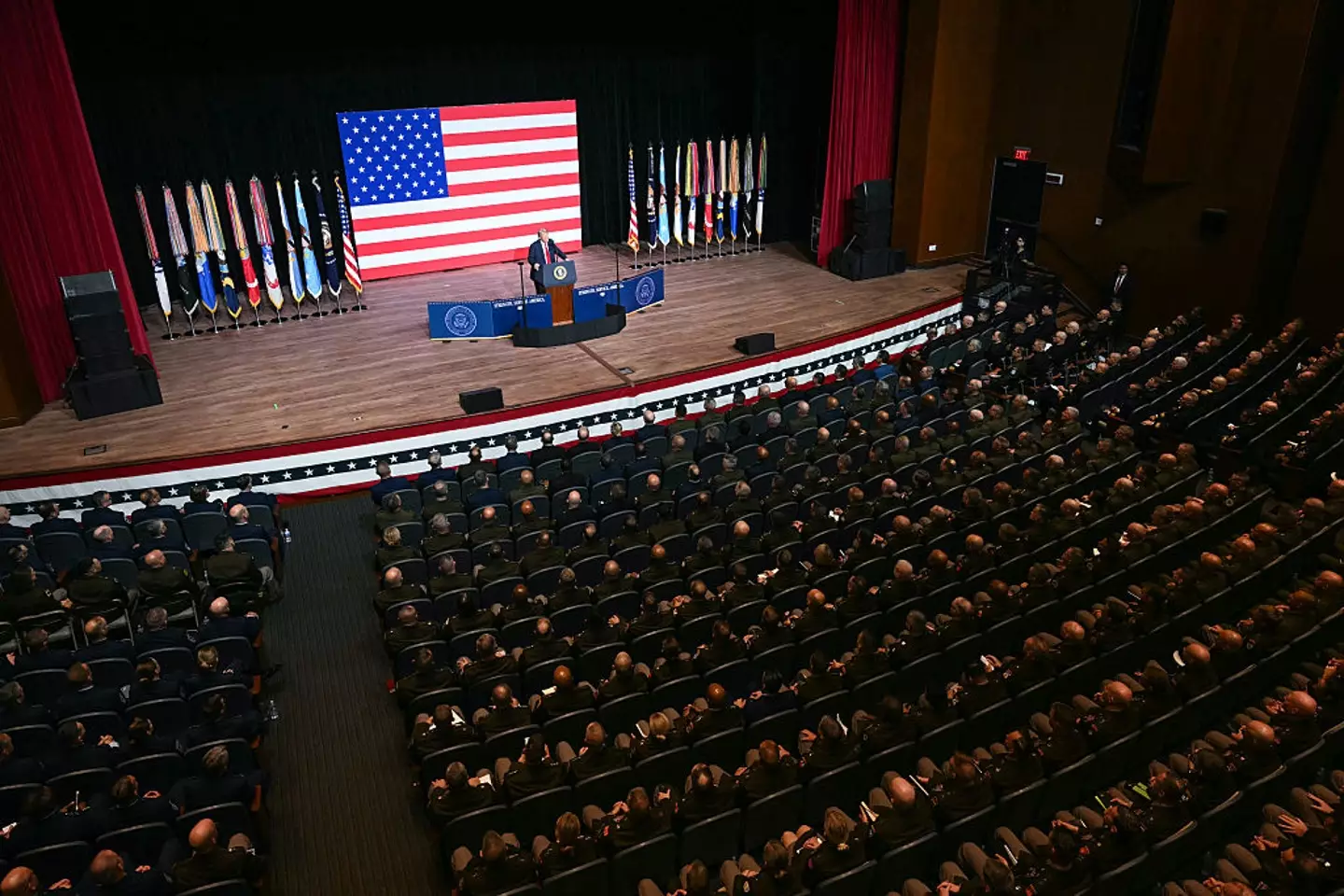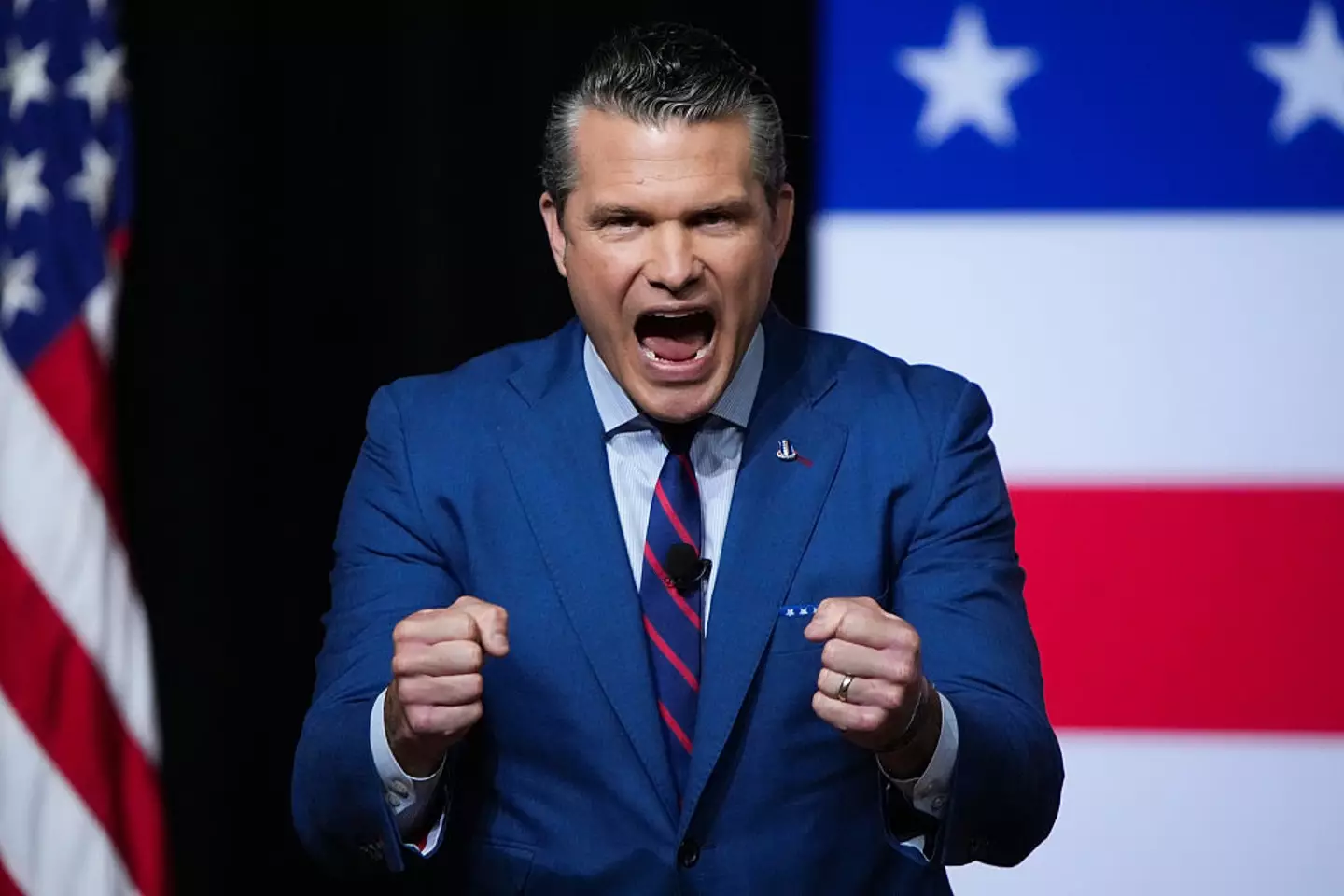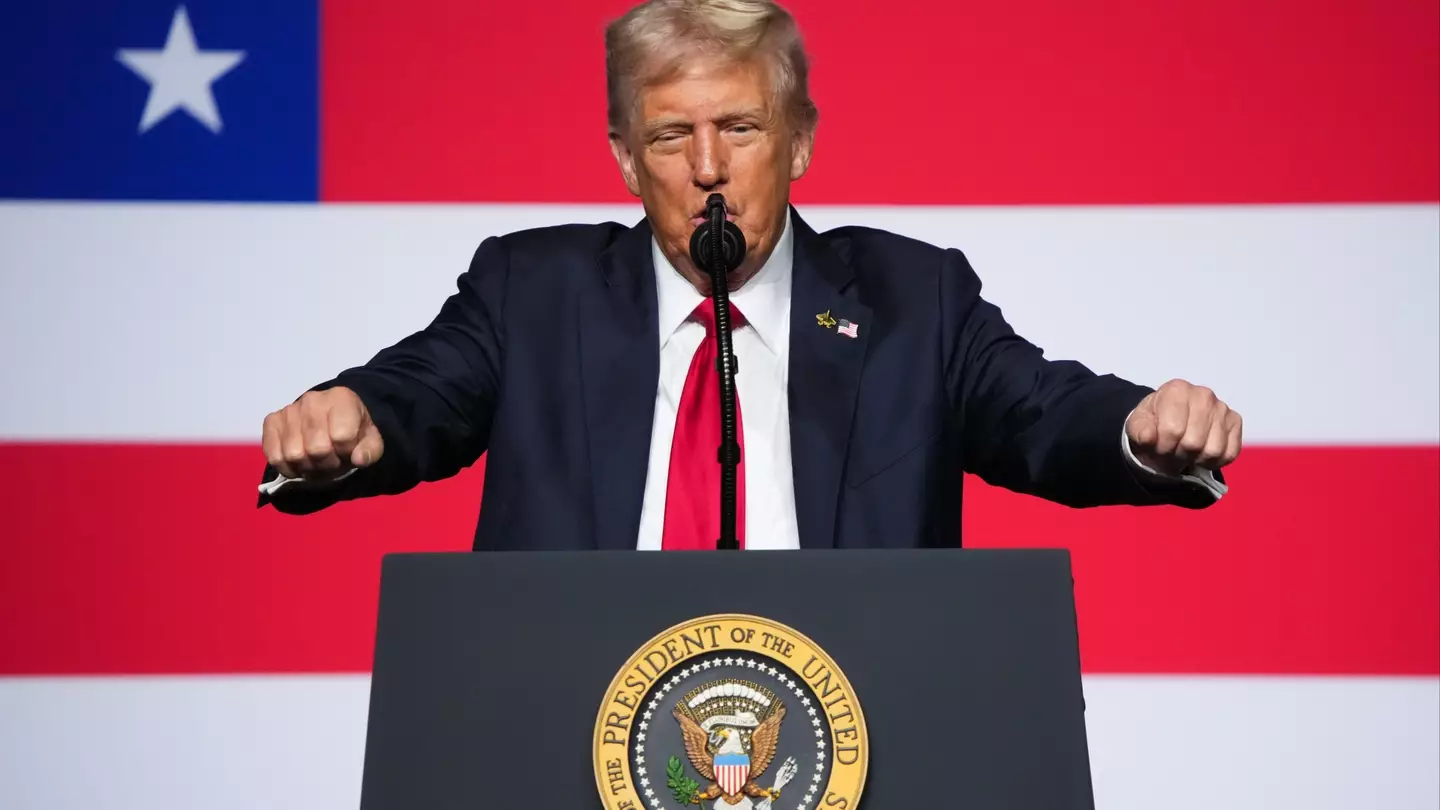During a speech at Marine Corps Base Quantico in Virginia, Donald Trump made a significant misstep when addressing military leaders. He commended the National Guard for their ongoing efforts in Washington, D.C., and Chicago as part of his strategy to address crime, homelessness, and immigration. However, his speech also included contentious remarks, such as the claim that the U.S. is “at war from within” and boasts about being “25 years ahead” of Russia and China in nuclear submarine capabilities.
Trump’s attempt at humor by referencing “two N words” that shouldn’t be mentioned, one being “nuclear,” fell flat. The silence from the audience was so pronounced that Trump himself remarked on it, saying, “I’ve never walked into a room so silent before.”
A former U.S. Army official later criticized Trump and Secretary of War Pete Hegseth for violating an unwritten military tradition. Retired Major General William Enyart expressed disapproval on MSNBC, likening Trump’s “enemy from within” comment to rhetoric from Nazi Germany, deeming it unconstitutional.
Former Lieutenant General Mark Hertling also denounced the breach of military decorum. Hegseth’s address, which called for ending “woke” practices in the military and criticized aspects like “fat troops” and personal grooming, sparked controversy. His remarks about female personnel were particularly contentious.

Military personnel reportedly felt uncomfortable being summoned without forewarning or clear purpose. Hertling pointed out the breach of a military leadership principle, stating, “You praise in public and you discipline in private.” He criticized the public nature of Hegseth’s reprimand, suggesting it was an attempt to create a divide between the military institution and the people they defend.

During his address, Hegseth proclaimed an end to “politically correct, overly sensitive” leadership and dismissed practices like diversity, equity, and inclusion initiatives. He emphasized more rigorous fitness standards, indicating that some combat roles might not be accessible to women.
Hertling voiced concerns that soldiers might feel compelled to disregard illegal directives, suggesting that many in the audience recognized the gravity of the situation and would resist orders that contradicted their professional values.

